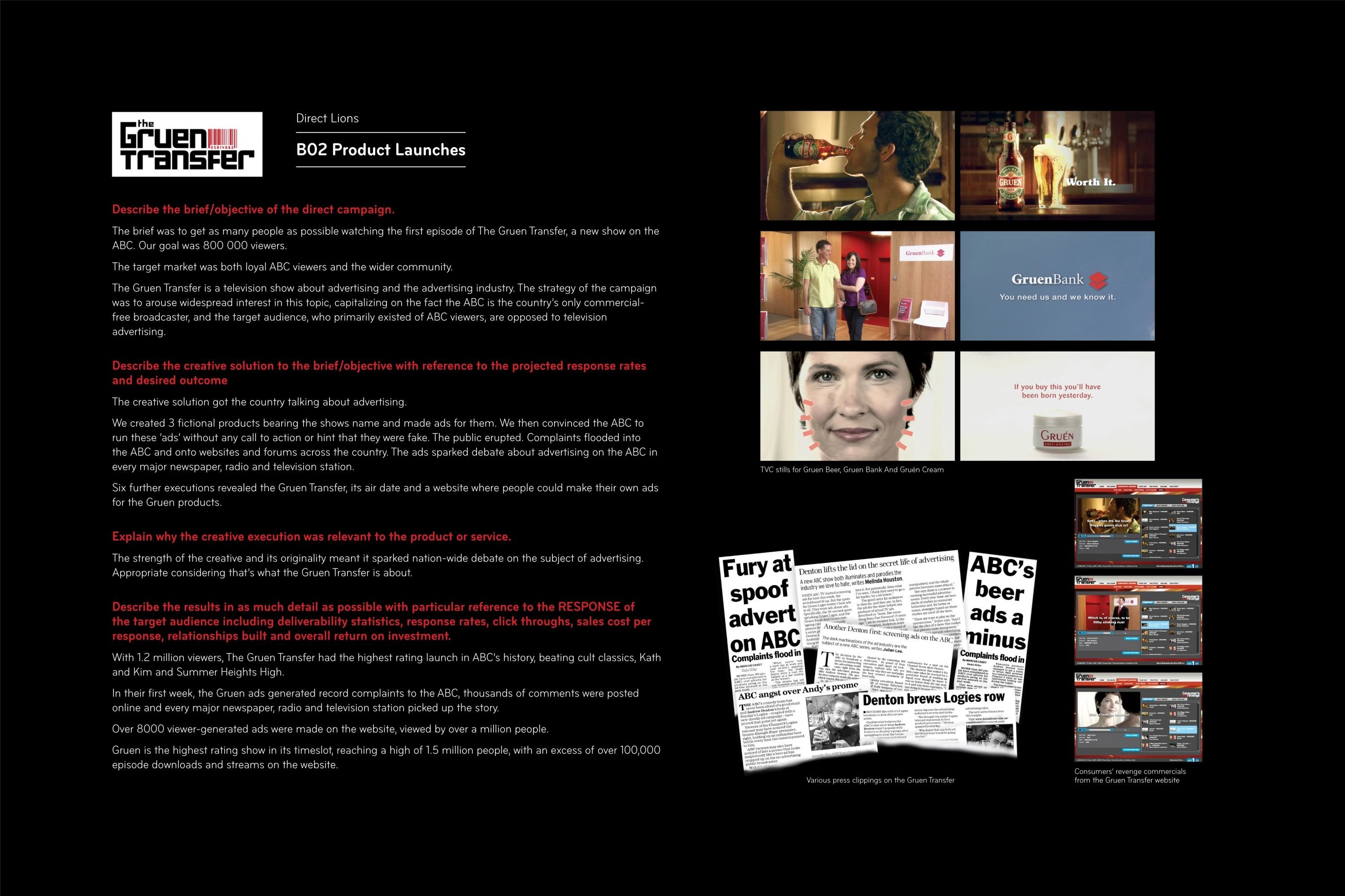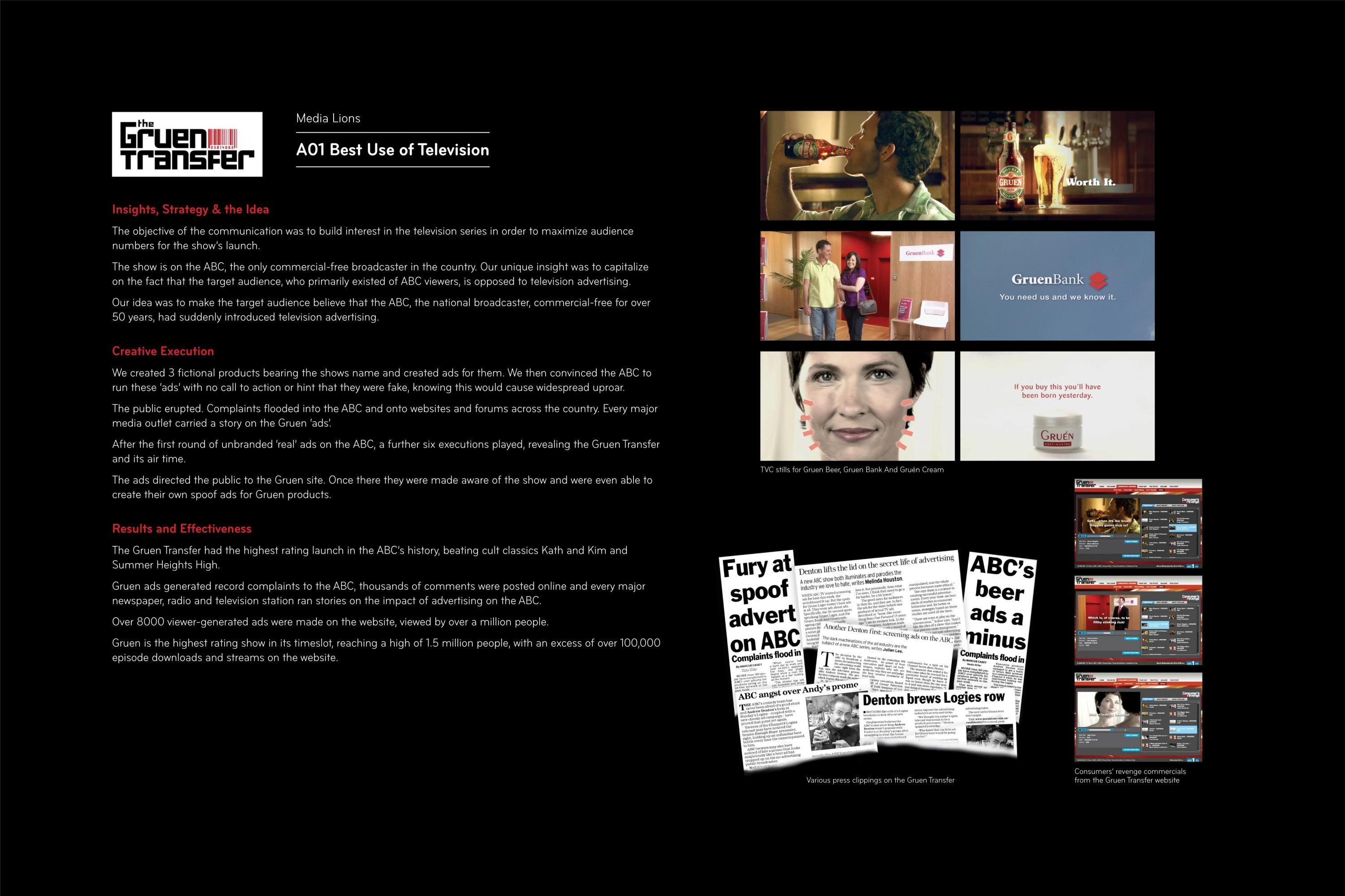Strategy and Effectiveness > Creative Strategy: Sectors
THE FIRST DIGITAL NATION
THE MONKEYS, PART OF ACCENTURE SONG, Sydney / THE GOVERNMENT OF TUVALU / 2024
Awards:


Overview
Credits
Overview
Why is this work relevant for Creative Strategy?
International law requires a nation to have physical territory in order to exist.
So, what happens when a country loses its land?
Tuvalu, a low-lying island nation in the middle of the Pacific Ocean is witnessing its land being swallowed up by the rising tides of climate change.
This the story of how creative strategy elevated Tuvalu from helpless victim of global warming to global leader driving meaningful change in international law and funding for developing nations.
More importantly, it’s created a platform to ensure Tuvalu’s survival as a nation even after its physical land is submerged by the seas.
Background
The nation of Tuvalu consists of nine islands with a peak elevation of just 4.6m above sea level. Current estimates predict that it will be completely submerged by 2050, displacing 12,000 citizens with no place to call home.
For 30 years, wealthy nations have resisted an agreement to fund climate adaptation measures for nations like Tuvalu.
But with the lowest GDP of all UN Members, Tuvalu can’t afford to go it alone.
And for 90 years, The Montevideo Convention has defined a “nation” as requiring physical territory. Tuvalu’s survival would also depend on other nations to creating a new norm in international law.
We needed a creative strategy and big idea that would convince other nations to commit to:
(1) Loss & damage fund for developing nations dealing with climate change
(2) Diplomatic recognition of Tuvalu’s sovereignty even without physical land
Please provide any cultural context that would help the jury understand any cultural, national or regional nuances applicable to this work e.g. local legislation, cultural norms, a national holiday or religious festival that may have a particular meaning.
Ultimate underdog situation.
Tuvalu wasn’t just up against the rising oceans, it was also punching way above its geopolitical weight. Of the UN’s 193 member countries, Tuvalu is the smallest by population and has the lowest GDP. It’s one of only 7 nations listed as Least Developed Countries that are also “highly vulnerable to economic and environmental shocks” as part of the UN’s Alliance of Small Island States. Alone, Tuvalu didn’t enjoy either the political weight or economic heft to survive in a landless future.
Proud and unique cultural identity under threat.
The most heartbreaking loss facing Tuvalu isn’t economic or geopolitical, it’s human. For Tuvaluans, connection to land is central to their identity. Home to their culture and ancestors, the islands contain the mana of their people. It’s not just a physical connection, but a shared spiritual one. A connection that would be shattered not just by the loss of land to live on, but the loss of a nation to belong to.
For generations, three values have been at the core of Tuvaluan culture:
1. Kaitasi – shared responsibility
2. Olaga fakafenua – interconnectedness
3. Fale-pili – being a good neighbour
By bringing these values to the forefront of international diplomacy, Tuvalu could rise above its situation as a tiny island in the middle of the ocean on the edge of existence.
Putting this spirit at the heart of our strategy could reposition Tuvalu in the world’s eyes from a victim to a pioneering world-leader.
Interpretation
Tuvalu is nine islands in the Pacific. Elevated just 4.6m above sea level, it’ll be the first nation lost to climate change, submerged by 2050.
After WWI, the Montevideo Convention defined a ‘nation’ as:
1. A permanent population
2. A defined territory
3. Government, and
4. Capacity to enter into relations with other states
Without land, Tuvalu wouldn’t exist.
So, the outcome of COP27 was crucial to Tuvalu’s future.
As the smallest of the UN’s 193 member countries, with the lowest GDP, climate adaptation would require funding beyond its means.
Possible only through unanimous agreement to loss and damage compensation for nations like Tuvalu. This idea was originally proposed in 1991. Rebuffed again in 2019. And again at COP26.
CORE CHALLENGE:
Get world leaders to commit diplomatically and financially towards Tuvalu’s continued existence as a nation, despite 30 years of resistance to financial responsibility, and international law established since 1933.
Insight / Breakthrough Thinking
Four insights inspired our strategy.
SOCIETY: A culture obsessed with Plan A, in denial of Plan B.
“There’s No Plan B” has echoed from t-shirts to the Eiffel Tower. Repeated by UN Secretary General; “We don’t have plan B because there’s no planet B”.
BRAND: Tuvalu acting on becoming a landless nation.
No global action forced Tuvalu to take steps towards becoming a landless nation:
- Changing international law.
- Digitally mapping maritime rights.
- Recording cultural heritage.
- Transferring services to the cloud.
CATEGORY: From victim to pioneering world-leader.
There are three core Tuvaluan values:
Kaitasi – shared responsibility
Olaga fakafenua – interconnectedness
Fale-pili –good neighbours
These inspired repositioning Tuvalu from victim to pioneering world-leader.
CUSTOMER: Citizens don’t contemplate countries existing online.
‘Digitisation’ has touched everything. Yet one element remains physical for everyone – our country. Our revelation, a simple provocation.
Tuvalu would become the world’s First Digital Nation.
Creative Idea
The idea was to become The World’s First Digital Nation.
Yet a complete replica wasn’t feasible before COP27.
So we built a digital twin of Minister Kofe’s COP26 speech location, Te Afauliku. Contrasting Tuvalu’s plight with the world’s inaction.
With three-pronged communications: Minister Kofe’s COP27 address, global media, and citizen lobbying of local environment ministers.
Minister Kofe’s address was from Te Afauliku, but revealed he was speaking from the digital nation; “Because the world has not acted, we must. Tuvalu could be the first country in the world to exist solely in the metaverse.”
We mined journalists’ articles and social media for a tailored approach: interested in islander culture, we emphasised the preservation of cultural artifacts. Interested in the metaverse, we emphasised the digital twin.
The address and global media coverage contained a call-to-action via Tuvalu.tv. Engaging people worldwide to “Save the Real Tuvalu” by emailing their environment minister.
Outcome / Results
DIPLOMATIC OBJECTIVE: Recognition of landless sovereignty.
Target: 6+ nations recognise Tuvalu’s statehood.
Result: 10 nations recognised Tuvalu’s statehood.
FINANCIAL OBJECTIVE: Compensation fund for climate damage
Target: Delegates of 132 countries commit to a loss and damage fund.
Result: Delegates of all 197 countries committed to a loss and damage fund.
Three decades since first proposed.
“We have determined a way forward on a decades-long conversation on funding for loss and damage.”
- UN Climate Change Executive Secretary
COMMUNICATIONS OBJECTIVE: International media coverage
Target: Coverage in 100+ news outlets worldwide.
Result: Coverage in 358 news outlets worldwide.
Including The New York Times, BBC, Reuters, The Guardian, CNN, Al Jazeera, Daily Mail, DW, The Australian, ABC and World Economic Forum
BEHAVIOUR OBJECTIVE: Global advocacy
Target: Citizens from 50+ countries visit Tuvalu.tv
Result: Citizens from 160 countries visited Tuvalu.tv
Target: 10% of visitors email their government.
Result: 23% of visitors emailed their government.
Please explain if there were any other discounting factors that may have impacted on the effectiveness of your work.
Had other nations pushed for the loss and damage fund?
The Association of Small Island States has advocated for such a fund for decades. While their support in the negotiations were valuable, this was the case at previous summits where the fund was knocked back. The COP27 difference was The First Digital Nation’s global pressure.
Was the loss and damage fund agreement a fait accompli coming into COP27?
Unlike outcomes announced early at COP27, agreement on the loss and damage fund took until the early hours on the final Sunday morning of the Summit.
Was significant media space donated by 3rd parties?
Yes, if including the PR coverage and Tuvalu’s allocated timeslot. Minister Kofe had three minutes to address COP27 delegates. But relied on PR coverage to gain attention worldwide.
The First Digital Nation covered by over 300 news outlets globally, media few multinational brands could buy, let alone Tuvalu.
More Entries from THE MONKEYS, PART OF ACCENTURE SONG
24 items















